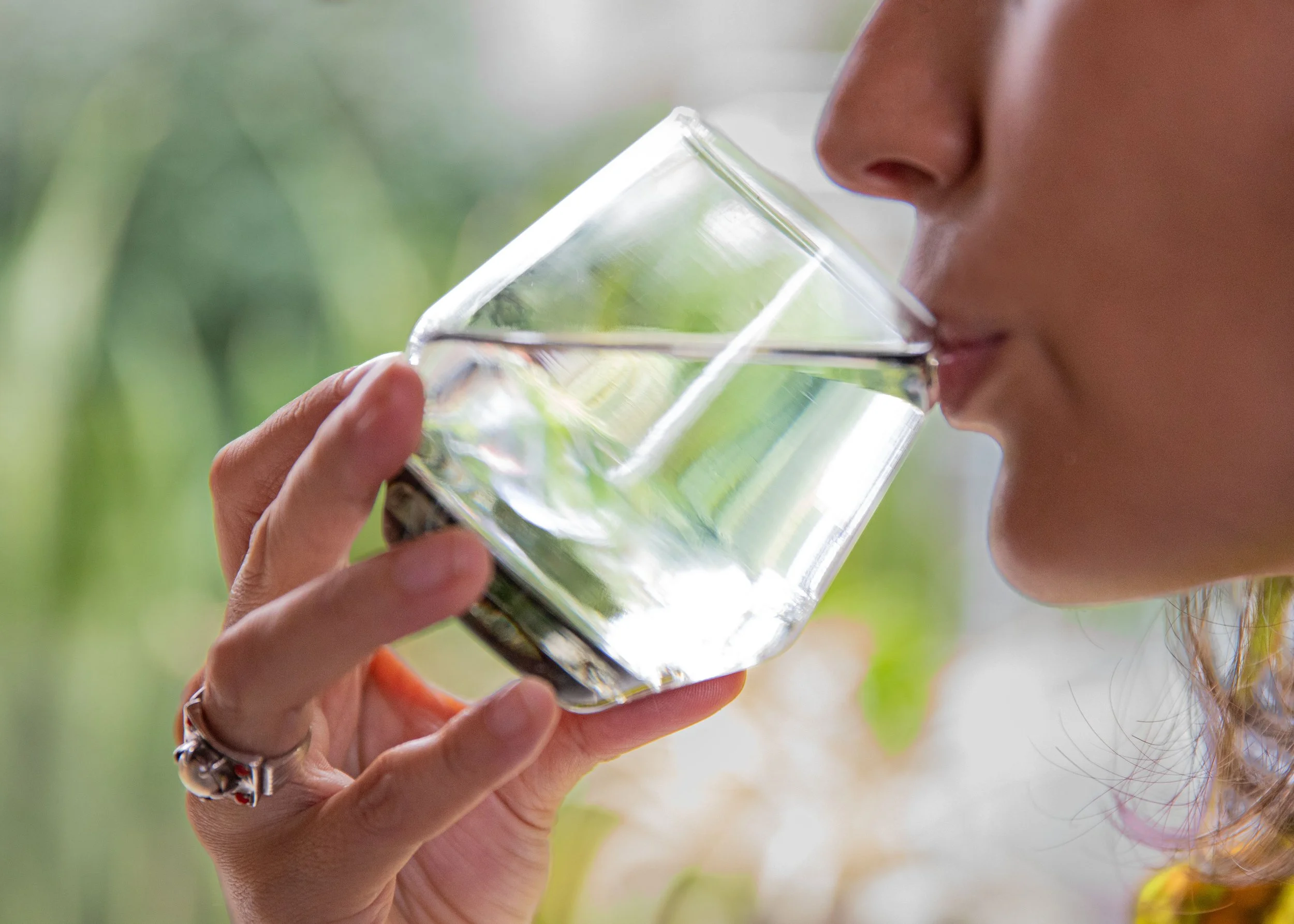THE AYURVEDA WAY OF DRINKING WATER
The art of drinking water is something I initially covered in my book East by West and I’ve expanded on more recently with articles including ‘How to Bathe, According to Ayurveda’ and ‘How the Temperature of Water Affects Us’. In short, when it comes to drinking water, choose the best quality (i.e fresh and filtered) water that you can, and if possible boil the water and cool it to the appropriate temperature for you, even better.
The way in which we consume this precious resource has a major impact on our wellbeing - in much the same way as how and when we eat is as important as what we eat. The main bodily function that water can disrupt is our Agni (our digestive fire). Too much or too little water, in combination with it being too hot or too cold, can throw our digestive fire off kilter.
With small adjustments and daily lifestyle tips, you can ensure you are supporting your Agni. Here are some tips from Ayurveda which share the best way to drink water for health in general, followed by the amount according to your dosha type:
Where possible, sit down to enjoy a drink (just as you should sit down when you eat).
To keep hydrated throughout the day, drink water in sips which allows our kidneys to completely absorb all the benefits of water, while keeping us comfortable. Gulping water too quickly can lead to bloating.
To better help your Agni, the water temperature should at least be the same as the room temperature. Warm is always better. Cold and icy waters can shut down your digestive fire - check out this blog post.
During meals, sip water only if needed. Drinking too much while you eat will dilute your Agni (or hydrochloric acid and digestive enzymes from a Western point of view) and take up space needed for digestive action Remember this guideline: fill your stomach with 50% food, 25% water and leave 25% empty space for digestion.
For the same reason, do not drink a lot of water before or after meals, leaving 30 mins either side ideally..
A healthy human body has its own built-in measurement system: thirst. If you are thirsty, drink more water. When you listen to the signals of thirst and sip water throughout the day you will be more in tune with what is right for your body on any given day.
Another great way to see if you are drinking enough water is your urine. It should be quite clear and straw-colored with no strong odour. If it is dark yellow, you need to drink more.
Your lips are another indicator. If they are dry and/or cracked, it is likely your body is dehydrated and needs more.
From your age, body type, diet, weather, stress levels to the amount of physical work or exercise you do - all these factors affect how much water you should drink for your body. With this in mind, the universal rule of eight glasses a day is simply not applicable to everyone. Pitta dosha types tend to be thirstier than Kapha types. Vata types are more likely to experience constipation or have dry and brittle skin and therefore need to drink a moderate amount of water (too much suppresses their already erratic Agni). For tips on the temperature of water we should be consuming and bathing in according to Ayurveda check out this post.
Ushapana (Water Therapy; drinking water early in the morning)
Ushapana is one of the most ancient disciplines within Ayurveda which is recommended by many Ayurvedic practitioners and is something you can incorporate into your morning dinacharya routine. Follow with your morning meditation, breathwork or yoga practice, or try the below, for a fresh start to the day.
Rise early, before sunrise, and start your day with a glass of lukewarm water sipped slowly on an empty stomach to gently flush out your system
Next, complete a deep breathing practice sitting in a comfortable seated position - using a deep inhale and exhale, repeat 7 times to calm your nervous system
Finally, connect with nature even just for a few minutes. According to Ayurveda the skin is the only barrier between your inner body and the outer natural world and connecting these two systems is deeply important for both mind, body and soul. It doesn’t have to be on a large scale either, it could simply be taking a 10 minute walk around your local park or having some time in your garden


